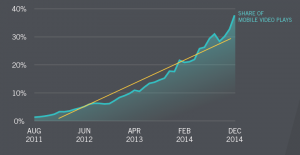Survey: Customer-Service Teams Want More Mental-Health Resources
But as it turns out, discontent is often on the other end, as well. According to a survey of contact center employees in the U.S. and the UK, four out of five say they need more mental-health resources to be happier and more productive.
Research done by Lucidworks, a San Francisco-based company that specializes in commerce, customer service and workplace applications, discovered that employees aren’t just solving tough customer problems, they are also upselling and cross-selling as part of their job. Pile on pandemic-related supply-chain problems, and you’ve got a potentially gruesome holiday season ahead for customer-service teams.
Its survey, which included more than 800 contact center employees, also revealed that in addition to tools such as internal chat and personalization, a large majority want more mental-health resources.
“Support for mental health and burnout prevention have been widely covered over the course of the pandemic,” says Lesley Heizman, product manager at Lucidworks. “We were interested in how much access to these types of resources employers provide to their contact center employees, across roles and nationalities.”
Around 70% of respondents said their employer already provides access to mental-health resources.
“When we asked all respondents: Do you feel like if your company gave you more mental health resources, you would have a better employee experience?, 81% said, Yes, I think more mental-health resources would make me happier and more productive.”
When Lucidworks asked the 566 respondents who said their employer already provides access to menta-health resources that same question, 85% answered affirmatively. “Hence, the ‘more is better’ approach,” said Heizman.
Other takeaways from the report include:
• Support for mental health and preventing burnout is much more common in the U.S. — 84% of U.S. respondents say their employer offers resources to deal with mental health and burnout, compared to only 56% of U.K. respondents who say the same.
• Roughly half of survey respondents said they get sufficient time in their day to take breaks so they have enough energy to deal with customers. Some 37% of respondents were lukewarm on the amount of breaks they get, saying it could be better, could be worse.
• The survey revealed a rift between entry- and senior-level employees. Entry-level and mid-level employees are more likely to report they don’t feel like they get enough breaks in the day to have the energy to deal with customers, compared to senior management and executive employees.
These are the kinds of mental-health resources being provided to the survey respondents:
Health coaching 50%
Therapy covered by insurance 48%
Gym membership 43%
Schedule flexibility 42%
Free Fridays 38%
Meditation apps 37%
Wellness stipend 33%
Company-hosted support groups 33%
(44)
Report Post






